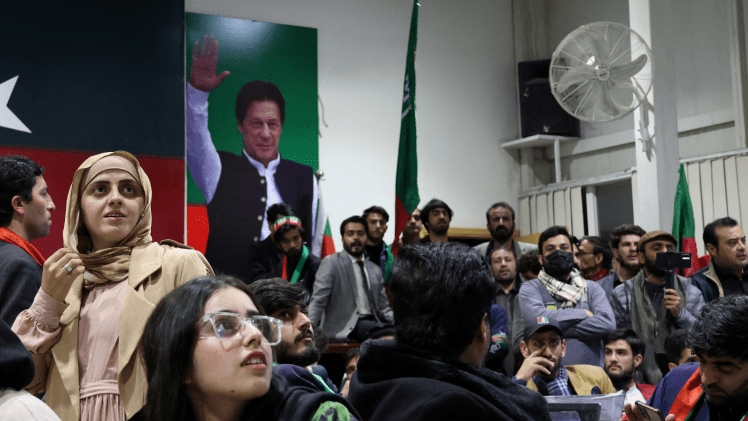As cash-strapped Pakistan desperately seeks loans and financial aid from international lenders to stay afloat, a massive data leak has exposed a startling disconnect – Pakistani nationals own a staggering 17,000 to 22,000 properties worth $12.5 billion in the opulent emirate of Dubai.
The revelation, first reported by Dawn.com on Tuesday, comes from a trove of leaked data that provides an unprecedented window into the world of Dubai’s real estate market, offering granular details on hundreds of thousands of properties, including information about ownership and usage, largely spanning 2020 to 2022.
Wealth Stashed Abroad as Pakistan Grapples with Debt Crisis The leaked data, obtained by the Centre for Advanced Defence Studies (C4ADS), a Washington D.C.-based non-profit research organization, paints a striking picture of Pakistan’s wealthy elite hoarding immense wealth abroad while the nation grapples with a severe economic crisis and struggles to secure loans from international lenders like the International Monetary Fund (IMF).
According to the leaked records, Pakistani nationals own properties valued at a staggering $12.5 billion in Dubai alone, underscoring the vast disparity between the country’s influential and wealthy class and its struggling masses, who face skyrocketing inflation, dwindling foreign reserves, and mounting public debt.
Outrage and Calls for Accountability
The revelation has sparked outrage across Pakistan and renewed calls for scrutiny of the wealth held abroad by the nation’s influential and wealthy individuals. Critics argue that such massive capital outflows exacerbate the country’s economic woes, depriving it of much-needed resources for development, poverty alleviation, and debt repayment.
“This data leak exposes the hypocrisy of Pakistan’s elite class, who have stashed billions abroad while the nation suffers from economic turmoil and a mounting debt crisis,” said Hafiz Pasha, an economist at the Lahore School of Economics. “There is an urgent need for transparency and accountability measures to stem the flow of ill-gotten wealth out of the country.
Concerns over Money Laundering and Corruption
The leaked data has also raised concerns about potential money laundering and corruption schemes facilitated by the opaque real estate market in Dubai. Analysts warn that the emirate’s lax regulations and strict secrecy laws have long made it an attractive destination for individuals seeking to park ill-gotten gains or evade taxes.
“Dubai’s real estate market has long been a haven for those looking to launder money or hide assets from authorities,” said Samina Ahmed, a former advisor to Pakistan’s National Accountability Bureau. “The sheer scale of Pakistani ownership revealed by this leak raises serious questions about the sources of this wealth and the potential involvement of corruption and illicit financial flows.“

Government Vows Action, Skepticism Persists
Responding to the revelations, the Pakistani government has vowed to investigate the matter and take appropriate action against any individuals found to have acquired assets through illegal means or evaded taxes.”We are committed to ensuring that no one is above the law, regardless of their wealth or status,” said a spokesperson for the Finance Ministry.
“Any Pakistani national found to have acquired assets through corruption or tax evasion will face severe consequences.”
However, skeptics remain doubtful about the government’s ability and willingness to hold the powerful elite accountable, citing a long history of impunity, weak enforcement of anti-corruption laws, and the influential lobbying power of the country’s wealthy class.
As Pakistan continues to navigate its economic crisis and engage in difficult negotiations with the IMF and other lenders, the leaked data has reignited debates about wealth inequality, capital flight, and the need for comprehensive reforms to address the nation’s deep-rooted economic and governance challenges.



